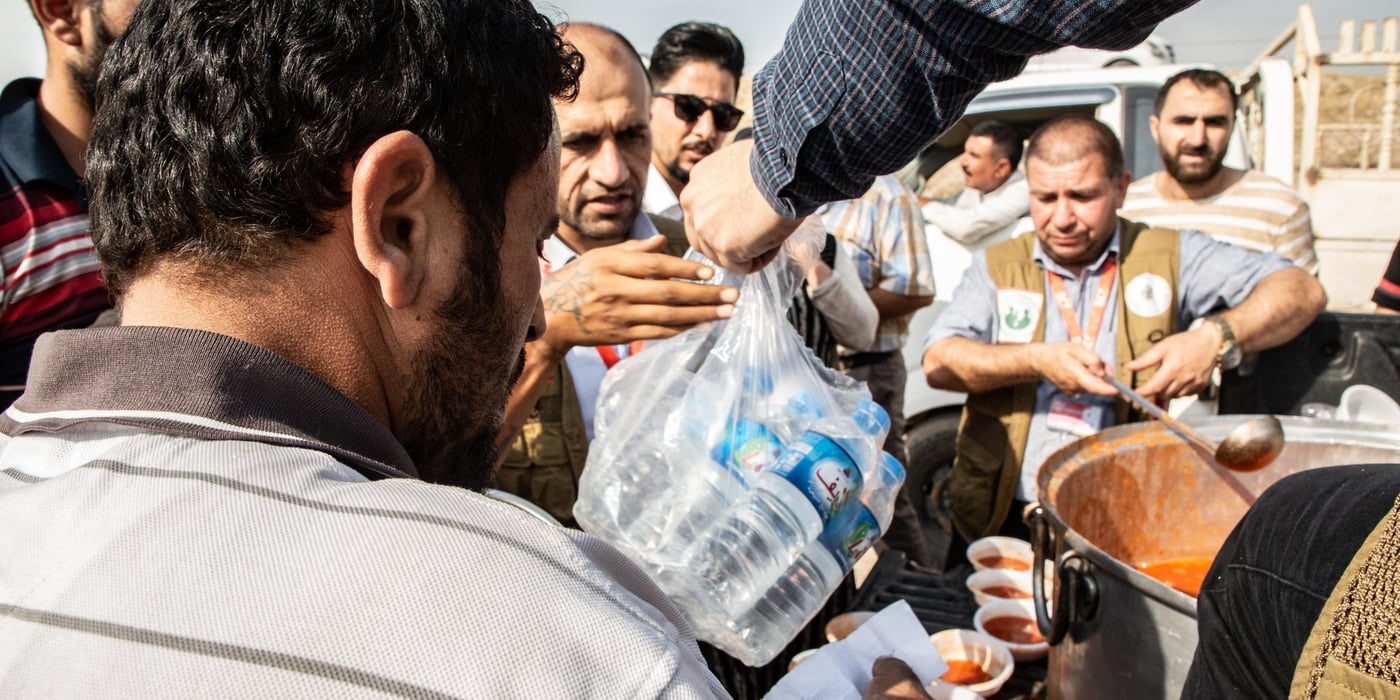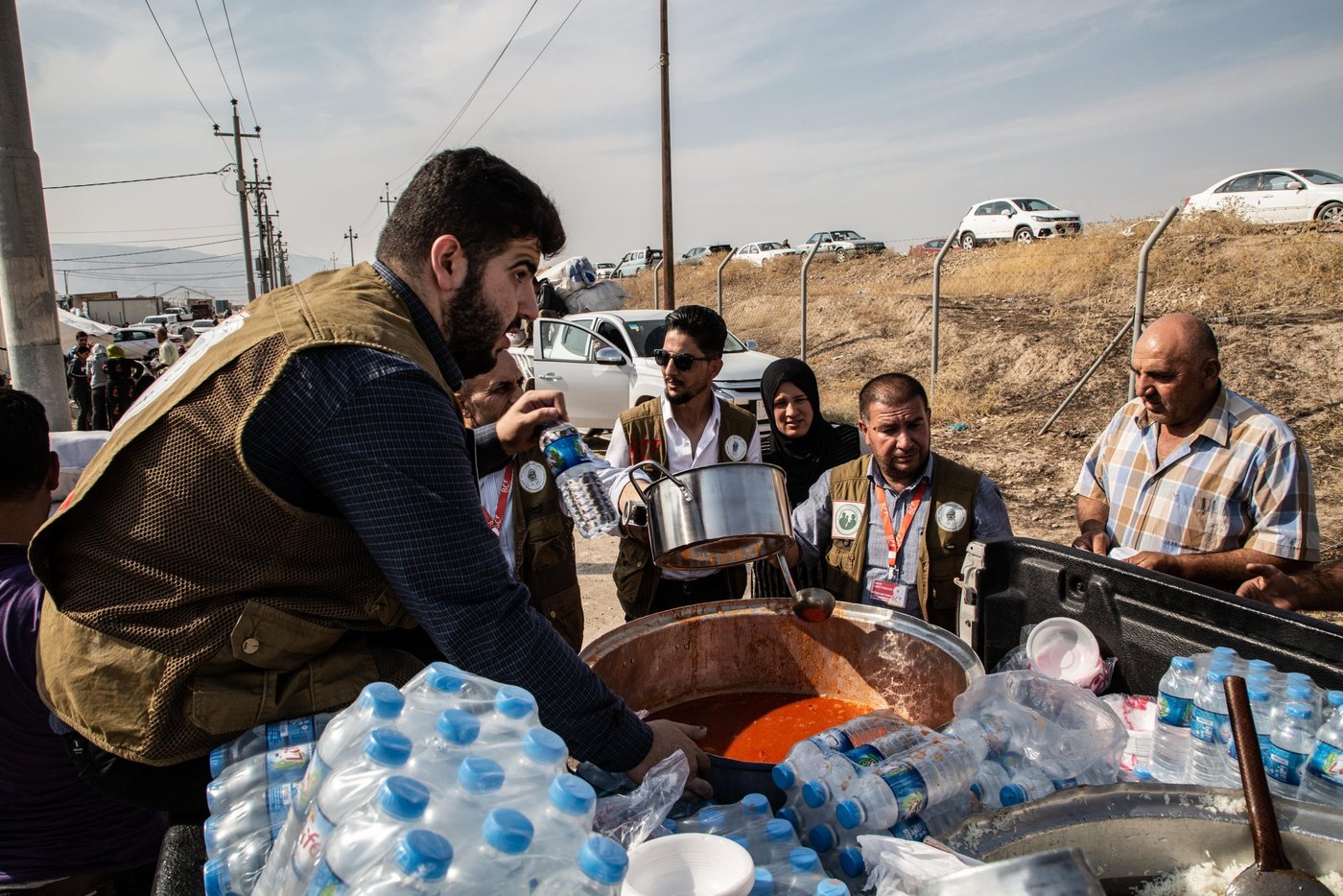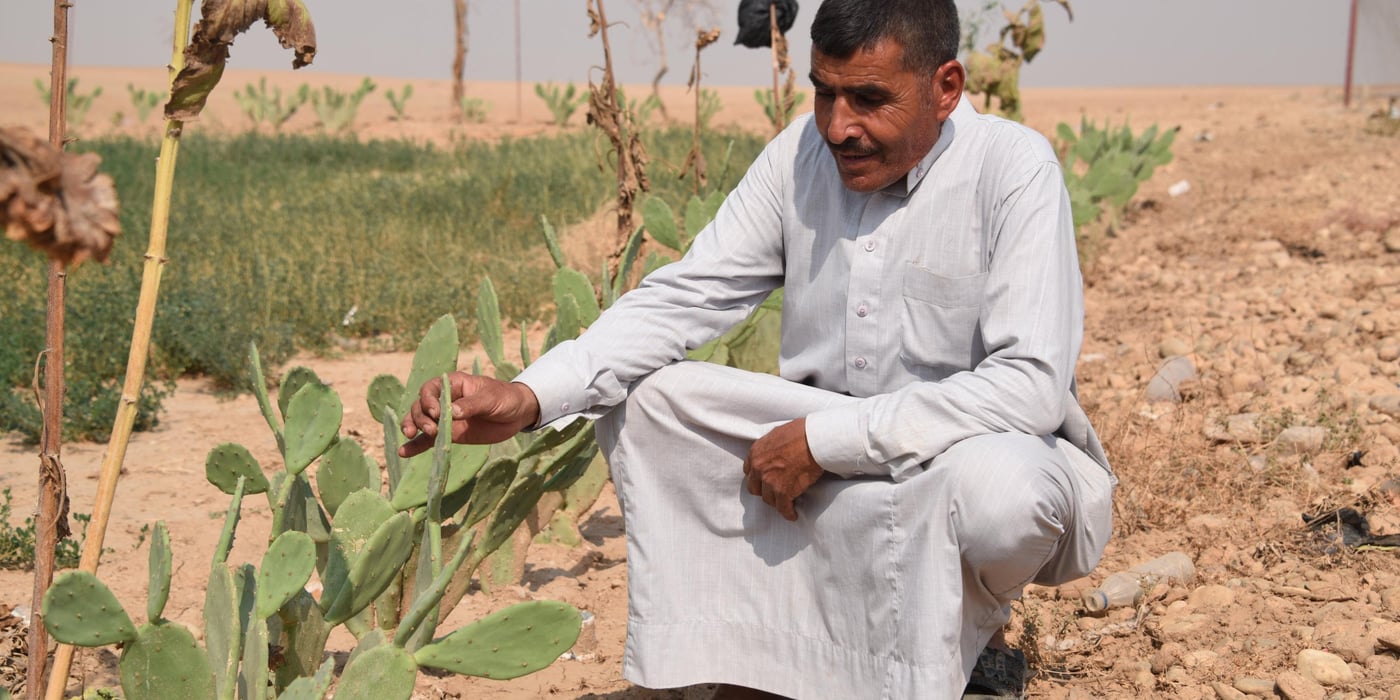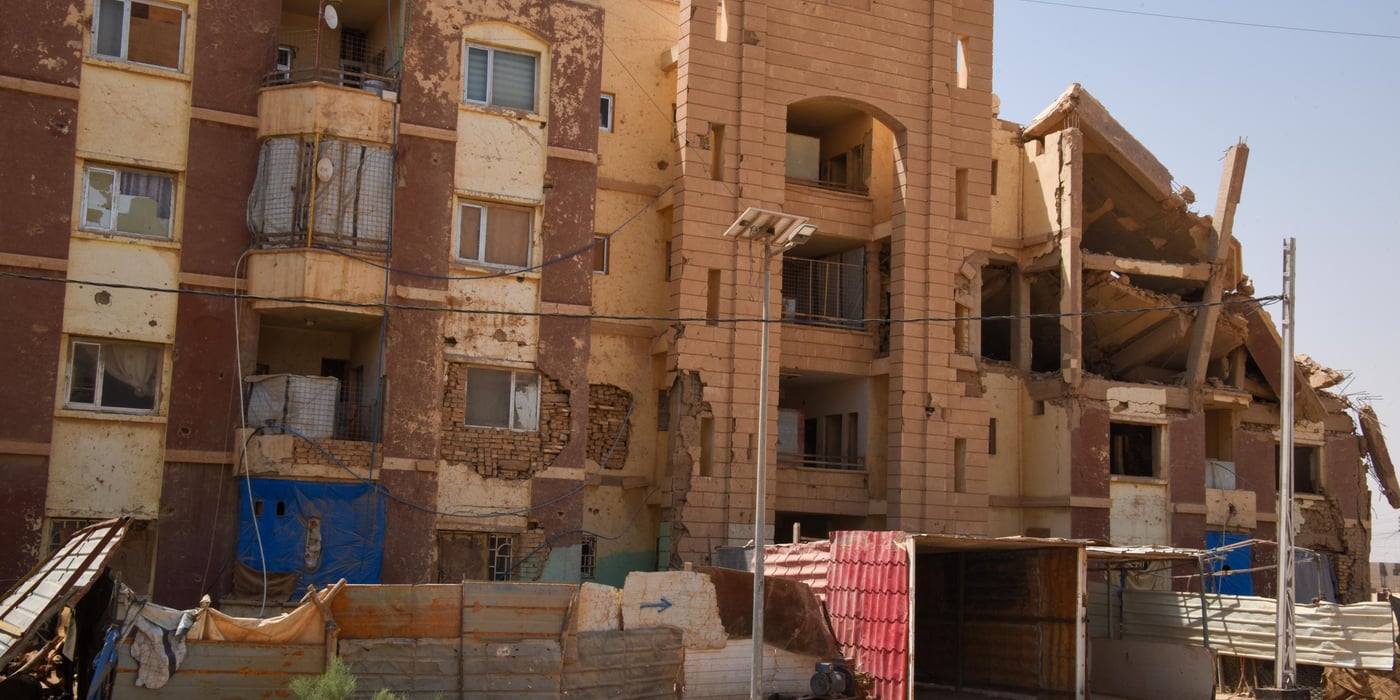
More than 7,140 Syrians have crossed into Iraq since Turkey started its military operation, displacing around 165,000. In the last 24 hours, around 1,736 refugees crossed into Iraq according to Kurdish authorities – the highest number to cross in one day, since the beginning of the military operation.
1,736 refugees last 24 hours
Newly arrived refugees told the Norwegian Refugee Council (NRC) that many more are hoping to cross into Iraq, gripped by fear and uncertainty about what happens once the ceasefire ends tonight, but are unable to do so.

"People are so scared about the situation; more arrive every day because they don't know what is going to happen with Turkey, and also with ISIS," said Ghada, 23 from Hassakah now living in Bardarash Camp since she crossed two days ago.
"People come from everywhere; Hassakah Kobane, Qamishli, but only those who have money can cross the border. People have to pay a lot of money, sometimes USD 500 per person. The poor people can't cross and are stuck in Syria, they will not be able to escape."
"There were dead bodies on the street"
Another refugee from Qamishli described the ordeal of escaping in the dead of the night with her husband and three daughters.
"There were dead bodies on the street," said Rifaa. "We found a smuggler to bring us to Kurdistan and we gave them the amount of money they asked to save ourselves. We paid USD 2,000 for five people. We saved our lives, but we suffered."
There were dead bodies on the street. We found a smuggler to bring us to Kurdistan and we gave them the amount of money they asked to save ourselves. We paid USD 2,000 for five people. We saved our lives, but we suffered.RIFAA, Syrian refugee
Last week, Turkey agreed to pause its fighting for 120 hours, expiring today, while Syrian Kurdish forces were meant to withdraw from a zone Turkey wants to control. But with fighting still ongoing in several areas, and the uncertainty of what happens after the deadline, families are weighing their options for survival.
Planning for 50,000 new refugees
The situation is still too volatile for many international aid agencies to resume most of the humanitarian services they used to provide in Syria before this recent escalation of violence. In Iraq, the UN and aid agencies are planning for up to 50,000 Syrians who might cross into from Syria in the coming months. NRC is providing drinking water at the border to those who manage to cross and working on setting up child-friendly spaces in the coming days in Bardarash Camp, where more than 6,900 new refugees are hosted. NRC is also scaling up its emergency response as increasing numbers of Syrians arrive every day.
"We're seeing hundreds arriving into Iraq every day and we expect more to arrive, not only because of the fighting but also because of the fear of what is going to happen next," said NRC's Iraq Country Director Rishana Haniffa. "Syrians who wish to cross to safety in Iraq must be allowed to do so, without any delay."




